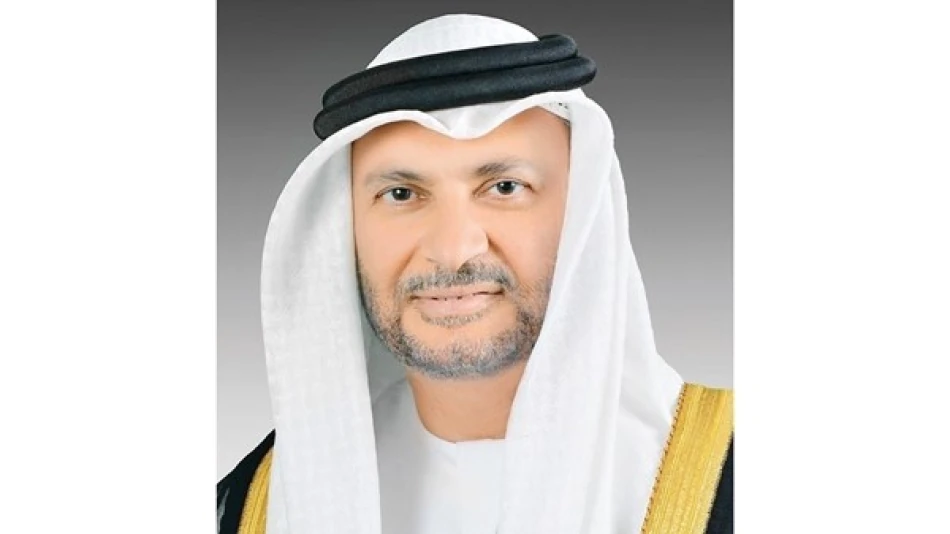
UAE Affirms Principled Stance on Qatar, Rooted in Shared Destiny
UAE Reaffirms Gulf Unity as Qatar Hosts Key Regional Summits Amid Israeli Aggression
The United Arab Emirates has reinforced its principled support for Qatar, emphasizing shared Gulf destiny as Doha successfully hosted both Gulf and Arab-Islamic summits. The diplomatic backing comes as regional powers consolidate their response to Israeli military actions, signaling a strategic realignment that could reshape Middle Eastern geopolitics and challenge Western-dominated international frameworks.
Strategic Diplomatic Messaging Emerges from Abu Dhabi
Dr. Anwar Mohammed Gargash, Diplomatic Advisor to the UAE President, used social media platform X to deliver a carefully crafted message that transcends typical diplomatic rhetoric. His statement that "the UAE's position with sisterly Qatar is principled and stems from the shared destiny that unites the Arab Gulf states across decades and crises" represents more than courtesy—it signals a deliberate effort to present Gulf unity as an enduring geopolitical constant.
The timing of this declaration, coinciding with Qatar's hosting of major regional summits, suggests coordinated messaging designed to project strength and cohesion to international audiences, particularly amid ongoing regional tensions.
Qatar's Summit Diplomacy Gains Regional Validation
Doha's Strategic Positioning
Qatar's ability to simultaneously host Gulf and Arab-Islamic summits demonstrates its rehabilitation within regional power structures following the 2021 Al-Ula Agreement that ended the Gulf diplomatic crisis. The UAE's explicit endorsement that "Qatar does not stand alone" validates Doha's return to mainstream Arab diplomacy and its effectiveness as a regional convener.
This development contrasts sharply with the 2017-2021 period when Saudi Arabia, the UAE, Bahrain, and Egypt imposed a diplomatic and economic blockade on Qatar. The current solidarity messaging indicates how external pressures—particularly from Israeli military operations—can accelerate regional reconciliation processes.
Institutional Implications for Gulf Cooperation
The successful summit hosting reinforces Qatar's role within the Gulf Cooperation Council (GCC) framework while demonstrating that smaller Gulf states can leverage diplomatic capital effectively. For investors and regional analysts, this suggests greater policy coordination potential among GCC members, particularly in energy markets and infrastructure development projects.
Regional Response to Israeli Military Actions
Gargash's assertion that "treacherous Israeli aggression motivates our solidarity" reveals how external security challenges are reshaping intra-Gulf relationships. The characterization of Israeli actions as "treacherous aggression" represents stronger language than typically employed in UAE diplomatic communications, suggesting a deliberate escalation in rhetorical positioning.
This hardened stance could influence regional economic relationships, particularly given the UAE's 2020 Abraham Accords normalization with Israel. The diplomatic balancing act between maintaining Israeli ties while expressing solidarity with Palestinian causes and regional partners demonstrates the complex calculations facing Gulf leaders.
Challenging the International Order
Rejecting "Law of the Jungle" Governance
The UAE diplomat's declaration that "the law of the jungle will not govern international behavior" directly challenges perceived Western double standards in international law application. This messaging aligns with broader Global South narratives questioning Western-dominated international institutions and their selective enforcement mechanisms.
For global markets, such rhetoric suggests potential shifts in how Gulf states approach international partnerships, potentially favoring multilateral frameworks that offer greater sovereignty protection and reduced Western influence.
Implications for Global Diplomatic Realignment
The emphasis on rejecting power-based international relations coincides with similar messaging from BRICS nations and other emerging powers. Gulf states' adoption of this language indicates their growing confidence in challenging established international hierarchies, particularly when backed by substantial energy resources and sovereign wealth.
Strategic Outlook for Regional Dynamics
The UAE's public solidarity with Qatar reflects broader trends toward regional self-reliance and reduced dependence on external security guarantees. This development suggests accelerated intra-Gulf economic integration and potentially more coordinated responses to international crises.
For international observers, the messaging indicates that Gulf states are prioritizing regional relationships over external partnerships when faced with perceived threats to regional stability. This shift could influence everything from energy export policies to defense procurement decisions, as Gulf leaders seek to balance competing international pressures while maintaining regional cohesion.
Most Viewed News

 Layla Al Mansoori
Layla Al Mansoori






